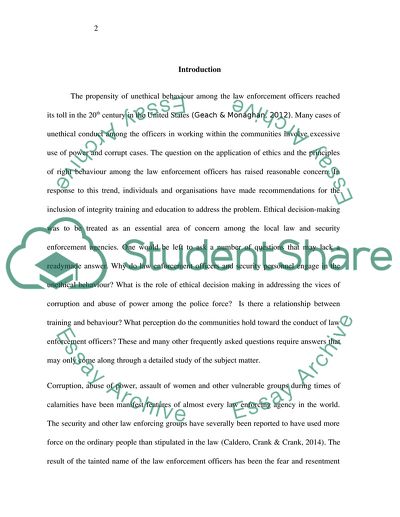Cite this document
(Right Behaviour among the Law Enforcement Research Paper, n.d.)
Right Behaviour among the Law Enforcement Research Paper. Retrieved from https://studentshare.org/law/1689493-the-ethical-decision-making-process-within-the-law-enforcement-organizationan-examination-of-inappropriate-unethical-behavior-from-law-enforcement-officers-while-working-within-the-communities
Right Behaviour among the Law Enforcement Research Paper. Retrieved from https://studentshare.org/law/1689493-the-ethical-decision-making-process-within-the-law-enforcement-organizationan-examination-of-inappropriate-unethical-behavior-from-law-enforcement-officers-while-working-within-the-communities
(Right Behaviour Among the Law Enforcement Research Paper)
Right Behaviour Among the Law Enforcement Research Paper. https://studentshare.org/law/1689493-the-ethical-decision-making-process-within-the-law-enforcement-organizationan-examination-of-inappropriate-unethical-behavior-from-law-enforcement-officers-while-working-within-the-communities.
Right Behaviour Among the Law Enforcement Research Paper. https://studentshare.org/law/1689493-the-ethical-decision-making-process-within-the-law-enforcement-organizationan-examination-of-inappropriate-unethical-behavior-from-law-enforcement-officers-while-working-within-the-communities.
“Right Behaviour Among the Law Enforcement Research Paper”, n.d. https://studentshare.org/law/1689493-the-ethical-decision-making-process-within-the-law-enforcement-organizationan-examination-of-inappropriate-unethical-behavior-from-law-enforcement-officers-while-working-within-the-communities.


